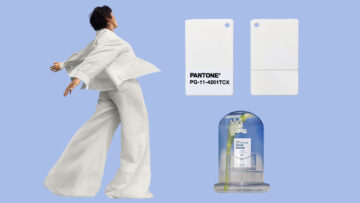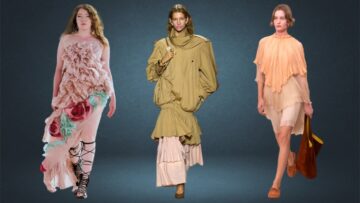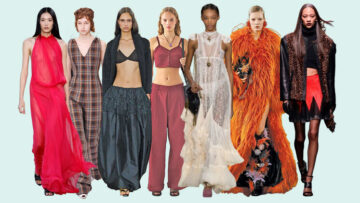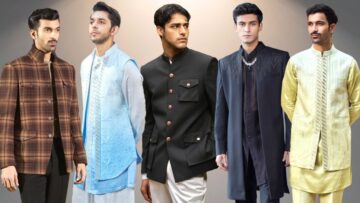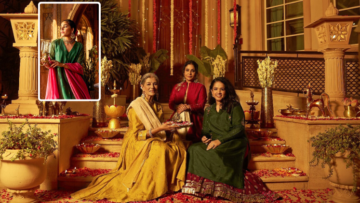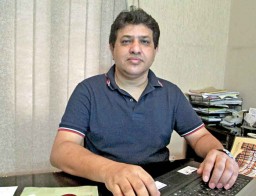
While a good number of the leading garment buyers have their liaison offices in Bangladesh, most of them are comfortable working through their buying offices or liaison offices situated either in India or Hong Kong. Yet, many local buying houses like Asmara, Synergies Sourcing, SA Sourcing, Li and Fung, to name a few, are doing really well as buying agents in this US $ 20 billion industry. Adding to this list is Bodyline Far East Ltd., originating from Hong Kong, which started operation in Bangladesh in 1989 as a buying and trading house. The company, which also has an office in USA, is working for brands like JCPenney, Walmart, Kohl’s, Tractor Supply, Weatherproof, etc., and is dealing mainly in men’s tops and bottoms.
 Handling a business of about US $ 30 million annually, solely from the US market and working with limited number of factories like Ultimate Fashions, Rishal Group, The International Garments, Intraco Designs and Zaber & Zubair Group, Mohammed Mostafa, General Manager, Bodyline Far East reveals with pride, “Since we work mainly with US, we were considerably hit by the recession in 2010 and had to cut down our operations a little. But now we are again on the growth path, as we are receiving good response from our customers. I can see reaching US $ 50 million by the end of next financial year.”
Handling a business of about US $ 30 million annually, solely from the US market and working with limited number of factories like Ultimate Fashions, Rishal Group, The International Garments, Intraco Designs and Zaber & Zubair Group, Mohammed Mostafa, General Manager, Bodyline Far East reveals with pride, “Since we work mainly with US, we were considerably hit by the recession in 2010 and had to cut down our operations a little. But now we are again on the growth path, as we are receiving good response from our customers. I can see reaching US $ 50 million by the end of next financial year.”
The gradual rise in business from Bodyline’s buyers since 2010 is also characterized with a change in their preference. “Around 4-5 years back, we had an order from Walmart for 6 million pieces of dress pants and we couldn’t find a factory that could do this product and the same happened when we had another order for dress blazers. But today, the scenario is totally changed, there are lots of such factories which have moved from basic to do structured or fashion garments with a lot of embroidery and we see a great opportunity for ourselves,” says Mostafa.
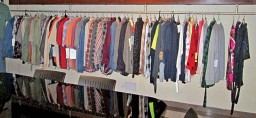 Bodyline’s New York office is the key to the entire operations. It receives the orders and then distributes it amongst its factories in Bangladesh, and at times on the behest of the buyer the responsibility goes beyond to sourcing fabrics, accessories, washing and trimmings for the manufacturer. Accordingly, as a buying house, Bodyline places two kinds of orders, one is FOB based, where the factory is responsible for the entire product from cut to pack; and the other is CM based, where only fabrication is done by the vendor while all other things like accessories, washing, quality, etc. are to be organized by the buying house.
Bodyline’s New York office is the key to the entire operations. It receives the orders and then distributes it amongst its factories in Bangladesh, and at times on the behest of the buyer the responsibility goes beyond to sourcing fabrics, accessories, washing and trimmings for the manufacturer. Accordingly, as a buying house, Bodyline places two kinds of orders, one is FOB based, where the factory is responsible for the entire product from cut to pack; and the other is CM based, where only fabrication is done by the vendor while all other things like accessories, washing, quality, etc. are to be organized by the buying house.
[bleft]Bodyline places two kinds of orders, one is FOB based, where the factory is responsible for the entire product from cut to pack; and the other is CM based, where only fabrication is done by the vendor while all other things like accessories, washing, quality, etc. are to be organized by the buying house.[/bleft]
The company is presently procuring everything from China through its Hong Kong office. This is in contrast to 20 years ago when almost all items, fabrics or trims, were being sourced from India.
“India was very strong in linen and georgette, but when the production lines in Bangladesh shifted from linen to cotton, around 1994 onwards, we had to move towards China for our sourcing. Nowadays almost everything is being sourced from China,” adds Mostafa. He further believes that soon the dependency on China, or on any foreign country for that matter can end, thanks to the growing textile and accessory industry in Bangladesh itself. “Big customers like JCPenney, Walmart have some nominated suppliers in Hong Kong, so in that case we have to import from China. But many multinational companies like Avery Dennison, Paxar, A&A, have also setup their manufacturing here in Bangladesh for labels and tags, so we are shifting our sourcing back to Bangladesh. Many products, like snap buttons or linings, which we thought are impossible to be manufactured in Bangladesh, are now being made here, which is a good sign for Bangladesh garment industry,” concludes Mostafa.


